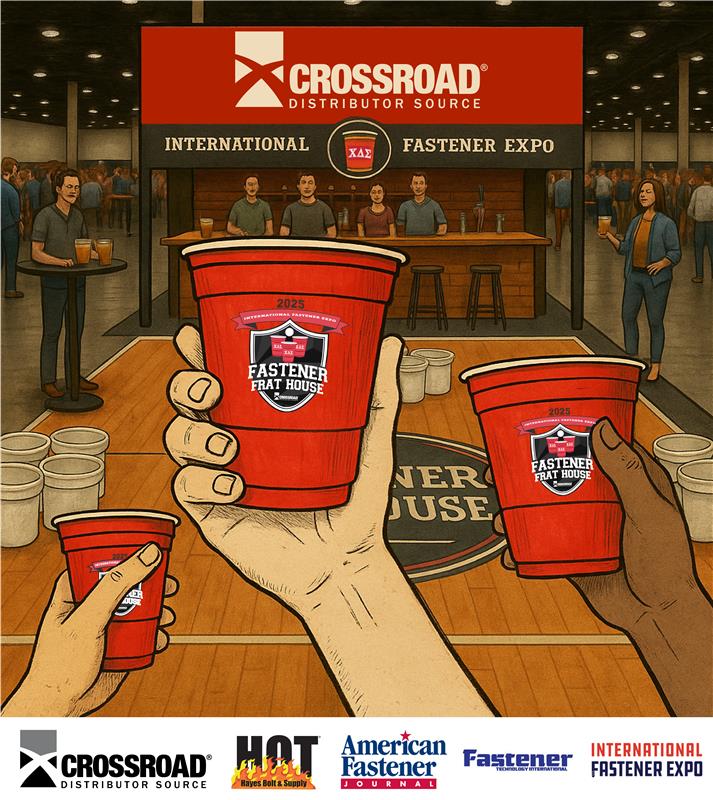Structural washers, also known as load-indicating washers or high-strength washers, are specialized types of washers. They are designed to provide a consistent and accurate method of measuring the tension in a bolted joint.
These washers typically have a unique shape, with a slightly conical or beveled surface, and are often made from hardened steel. When a bolt is tightened, the washer flattens under the applied load. The amount of flattening is proportional to the tension in the bolt, providing a visual indication of the bolt’s tension level.
Structural washers are commonly used in construction and engineering applications where precise tensioning of bolts is critical for structural integrity, such as in bridges, buildings, and other large structures.
Materials and Coatings
Structural washers are typically made from high-strength materials to withstand the loads and stresses they are subjected to in structural applications. Some common materials used for structural washers include:
- Steel: Structural washers are often made from steel, including carbon steel and alloy steel. These materials provide high strength and durability, making them suitable for use in structural applications.
- Stainless Steel: Stainless steel washers are resistant to corrosion, making them suitable for use in environments where corrosion resistance is important, such as outdoor or marine applications.
- Hardened Steel: Washers made from hardened steel undergo a heat treatment process to increase their hardness and strength, making them suitable for use in high-stress applications.
- Aluminum: Aluminum washers are lightweight and corrosion-resistant, making them suitable for use in applications where weight savings are important, such as aerospace applications.
In addition to the material, structural washers can also be coated or plated to enhance their corrosion resistance and durability. Some common coatings and platings used for structural washers include:
- Zinc Plating: Zinc plating provides a protective layer that helps prevent corrosion, making it suitable for use in outdoor or corrosive environments.
- Hot-Dip Galvanizing: Hot-dip galvanizing involves dipping the washers in molten zinc to provide a thick, durable coating that protects against corrosion.
- Mechanical Galvanizing: Mechanical galvanizing involves coating the washers with a layer of zinc using a mechanical process, providing a durable and corrosion-resistant finish.
- Dacromet: Dacromet is a coating that provides corrosion resistance and is often used in automotive and industrial applications.
- Geomet: Geomet is a coating that provides corrosion resistance and is often used in automotive and industrial applications.
The choice of material and coating for structural washers depends on the specific application requirements, including the environment, load, and corrosion resistance requirements.
Standards and Specifications
There are several standards and specifications that apply to structural washers, ensuring their quality, performance, and compliance within the industry. Some of the most common standards and specifications include:
ASTM F959/F959M – Standard Specification for Compressible-Washer-Type Direct Tension Indicators for Use with Structural Fasteners: This specification covers the requirements for compressible-washer-type direct tension indicators (DTIs) intended for use with structural fasteners.
ASTM F436/F436M – Standard Specification for Hardened Steel Washers: This specification covers the chemical, mechanical, and dimensional requirements for hardened steel washers for use with fasteners having nominal thread diameters of 1/4 through 4 in.
AISC (American Institute of Steel Construction) – The AISC provides standards and guidelines for the design, fabrication, and erection of structural steel. While not specific to washers, AISC standards often dictate the use of certain types of fasteners and hardware, including washers, in structural steel construction.
ASME (American Society of Mechanical Engineers) – ASME standards may also apply to structural washers used in pressure vessel and piping applications. ASME B18.21.1 covers the dimensional requirements for hardened steel washers.
ISO 7093 – ISO standard for washers for use with metric bolts and screws. While not specific to structural washers, ISO 7093 provides general requirements for washers used with metric fasteners.
It’s important to note that specific project requirements, codes, and standards may vary depending on the location and nature of the construction project. It’s recommended to consult the relevant standards and specifications for your specific application to ensure compliance.
Applications for Structural Washers
Structural washers are used in various applications where accurate tensioning of bolts is essential for structural integrity. Some common applications include:
Steel Structures: Structural washers are often used in the construction of steel structures such as buildings, bridges, and industrial facilities. They help ensure that bolts are properly tensioned to prevent loosening and maintain structural stability.
Heavy Machinery: Structural washers are used in the assembly of heavy machinery and equipment to ensure that bolts are tightened to the correct tension levels, preventing equipment failure, and ensuring safe operation.
Power Plants: In power plant construction and maintenance, structural washers are used to secure critical components and ensure that bolts are tightened to the proper specifications to withstand high temperatures, pressures, and vibrations.
Pipelines: Structural washers are used in the construction and maintenance of pipelines to secure flanges and other connections, ensuring that bolts are properly tensioned to prevent leaks and maintain the integrity of the pipeline.
Marine Structures: Structural washers are used in the construction of marine structures such as offshore platforms, shipyards, and port facilities to secure structural components and withstand the harsh marine environment.
Railway Infrastructure: Structural washers are used in the construction and maintenance of railway infrastructure such as tracks, bridges, and tunnels to secure components and ensure safe and reliable operation of the railway system.
Overall, structural washers play a crucial role in ensuring the structural integrity and safety of various types of structures and equipment in a wide range of industries.
A variety of fasteners and related products and tools will be featured at North America’s largest fastener event. Join us in Las Vegas for IFE 2024 this September 9-11, with the Expo Hall being open September 10-11. Registration will be opening soon!








